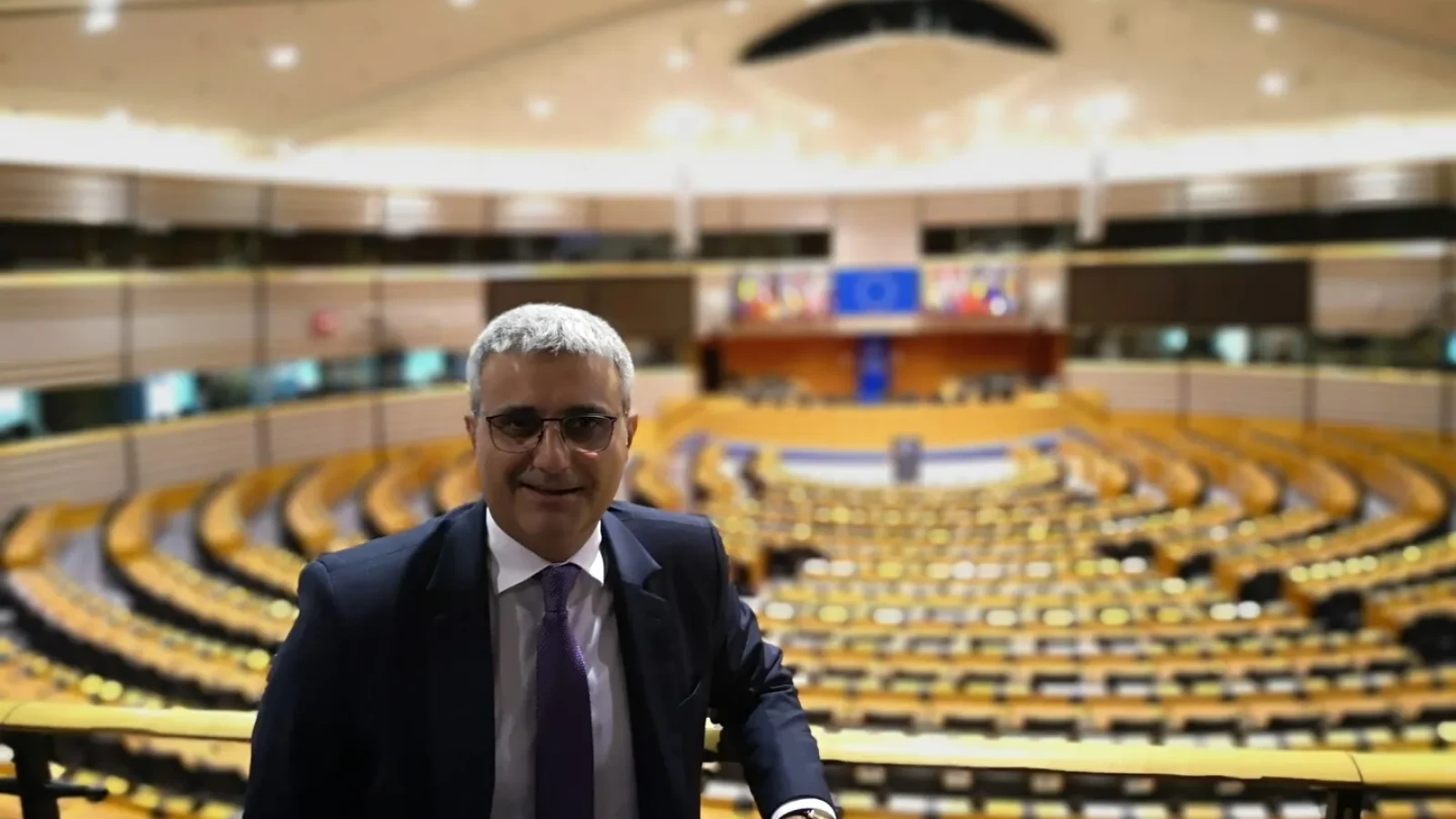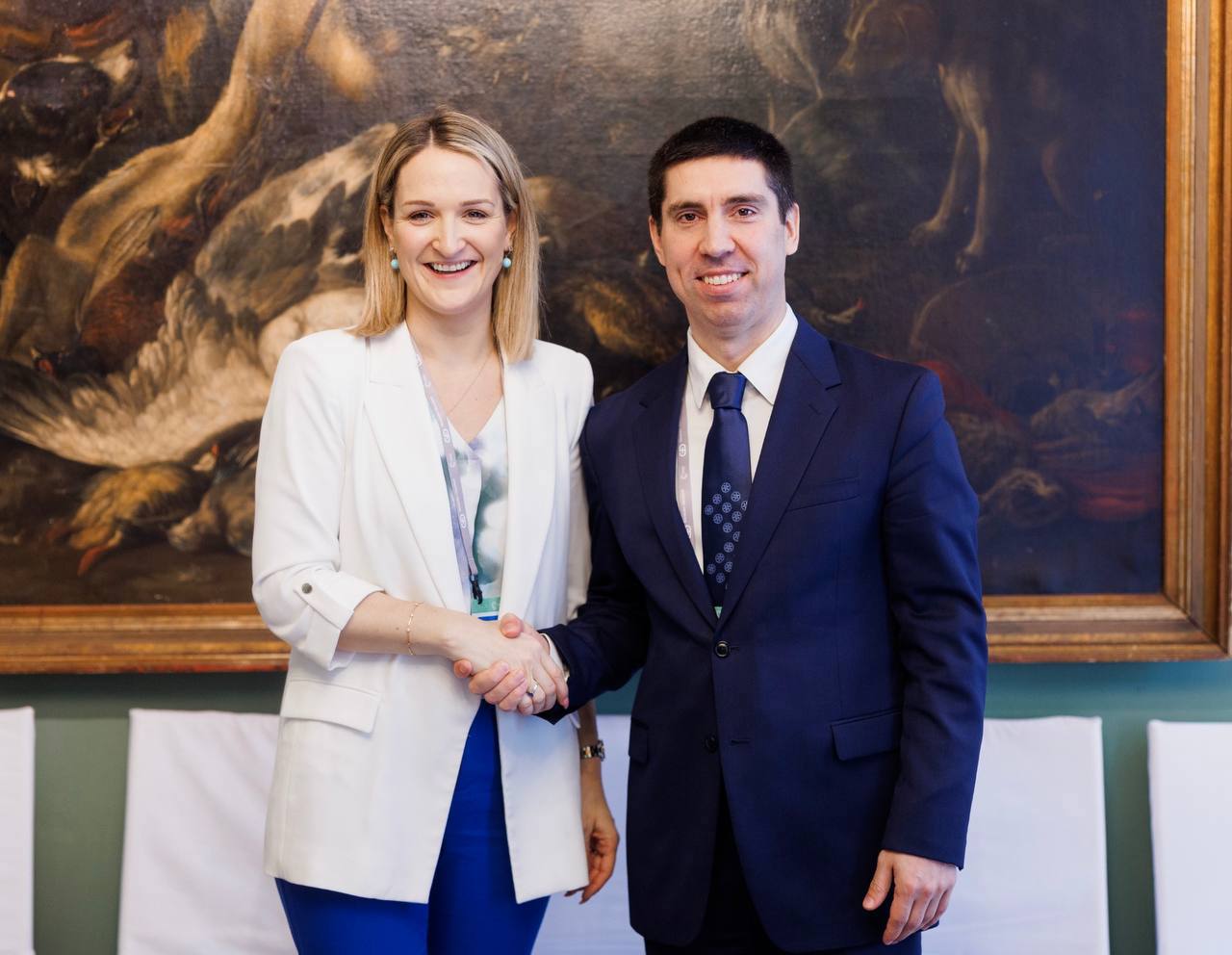The Fit for 55 package is seen as an important instrument to combat global warming, with proponents even calling it the 'biggest climate protection law ever'. Now the European Parliament has given the green light for the central legislation of the package.
The EU wants to reduce its carbon dioxide (CO2) emissions by 55 percent by 2030, compared to 1990 levels, and become climate neutral by 2050. In Strasbourg on Tuesday, the European Parliament voted by a large majority in favour of the three areas considered the centrepiece of the 'Fit for 55' package: emissions trading, the climate social fund and the CO2 tariff. All three were presented by the European Commission in the summer of 2021 to counteract climate change, told Agerpres.
German MEP Peter Liese (EPP, right), the rapporteur responsible for the report, spoke of the 'biggest climate protection law of all time.' Although almost all member states are on board when it comes to a greener future, the regulations and targets pose challenges.
Key legislation: Emission trading rules, no more 'climate dumping'
Emissions trading is a key instrument for European climate protection. Companies have to buy pollution certificates if they emit CO2. This is supposed to create an incentive to produce less of it. The system is now being tightened, with the number of pollution allowances to be reduced faster than previously planned.
This is also intended to motivate non-EU countries to increase their climate protection targets. From 2034 onwards, producers abroad will also have to pay for CO2 emissions if they want to sell their goods in the EU. The measure aims to ensure that climate protection efforts are not undermined by shifting production out of the EU to countries with more lax regulations. The rules apply to iron, steel, cement and aluminium, but also to fertilisers, electricity or hydrogen. Anyone who wants to import these goods must make up for the difference between the CO2 price paid in the country of production and the higher price of CO2 allowances in the EU emissions trading system.
'The CO2 border adjustment strengthens the polluter pays principle' as the basis for a sustainable industrial policy. Such a mechanism protects the European market from carbon leakage by third countries with weaker environmental standards,' praised German MEP Delara Burkhardt, the spokeswoman on environmental policies for the German Social Democrat delegation in the European Parliament.
'By extending the Emission Trading Scheme (ETS) to new sectors, strengthening its instruments and abolishing free emission allowances, we will ensure that the EU's biggest polluters will have to abandon old practices and switch to clean technologies, processes and products,' the Slovenian Ministry of Environment, Climate and Energy said with regard to the border-based carbon adjustment mechanism on Wednesday.
In the summer of 2022, Spain had proposed a cap on the CO2 emission allowances mechanism designed to encourage pollution reduction and make the sectors that emit the most greenhouse gases pay.
'The CO2 border adjustment strengthens the polluter pays principle' as the basis for a sustainable industrial policy.'
German MEP Delara Burkhardt
France, Spain, Germany: Committed with reservations?
While France is committed to reducing its emissions by 40 percent by 2030 compared to 1990, the country is lagging behind on its renewable energy deployment targets for the 2019-2023 period and relies heavily on nuclear power for its decarbonisation efforts, even though this form of energy is not unanimously supported within the EU.
Furthermore, rising energy prices and the phasing out of free CO2 emission allowances in Europe are threatening more than 150,000 industrial jobs in France, stated pro-industry think-tank La Fabrique de l'Industrie in a study earlier this April. If the introduction of the Carbon Border Adjustment Mechanism (CBAM) was once considered favourably as a means of putting an end to the 'climate dumping' of certain commercial powers, industrialists point to the shortcomings of the system: they argue in particular that the CBAM will only tax entries into the European domestic market and will weigh on the competitiveness of European exports 'in the face of foreign competition that will not have suffered the same upstream carbon costs.'
While Spain supports the package, there is still a long way to go: In 2021, Spain's gross carbon dioxide emissions amounted to 288.6 million tonnes. While this is similar to the 290.1 million tonnes emitted in 1990, and well below the 2007 peak of 446.7 million tonnes, Spain needs to cut emissions more strongly. In September 2022, the main opposition party in Spain, Partido Popular, proposed a substantial price reduction of CO2 emission rights at the European level on a temporary basis or, if necessary and agreed to, the suspension of their application for a few months.
After the vote, Olaf in der Beek, member of the German Bundestag and climate policy spokesman for the German FDP parliamentary group, spoke of a 'good day for climate protection in Europe.' However, in der Beek still sees room for improvement: the next step in Germany, he said, is for the national system of CO2 pricing to develop into a genuine emissions trading system with a fixed CO2 cap from 2024.
Bulgaria urges importance of legal framework
At the informal meeting of the European Union Ministers for the Environment in Stockholm earlier this week, Bulgaria's position took challenges for businesses into account.
According to Bulgaria, action is needed to increase European production capacities for green technologies and the competitiveness of EU industry. This could be done by minimising the administrative burden for both industry and the public sector, accelerating access to financing and encouraging investment in the construction of zero-emission industrial zones.
Looking at preserving and increasing its competitiveness, the country underlines the importance of a stable and predictable legal framework.
EU accession candidate Serbia harmonises its decarbonisation goals
The Serbian Minister of Mining and Energy, Dubravka Đedovic, stated that the goal for the country's economy is to be decarbonised by 2050. According to her, Serbia wants to harmonise its goals with the EU goals as much as possible
'One is the share of renewable energy sources in electricity production, our goal is a 45 percent share in 2030, and it is realistic and achievable. As for the share of renewable energy sources in gross final consumption, this is something that we are now trying to harmonise. My expectations are that it will be more than 30 percent and less than 40 percent of the share,' said Đedovic and added that the country had to be ambitious, but realistic.
According to her, seven years is not a long period for energy projects, as they require both time and large funds. In addition, care must be taken to ensure a fair transition, primarily for workers in the mining sector.
Climate social fund against higher costs, partly funded by emission trading revenue
Higher costs for consumers due to the energy transition, such as rising heating costs, are to be cushioned by a fund worth 86.7 billion euros from 2026. The climate social fund can be used to relieve households or finance investments, for example in more efficient buildings or public transport. Three-quarters of the fund will be financed by revenue from emissions trading and one-quarter by the Member States.
The fund will ensure that the costs of the green transition are not disproportionately borne by the EU's socially most vulnerable citizens, the Slovenian Ministry of Environment, Climate and Energy stated.
However, the social policy spokesman for Germany's right wing AfD group in the EU Parliament, Guido Reil, criticised the climate social fund as 'an indirect admission that the EU's climate policy is an elite project that places a greater burden on the weaker and poorer members of society in particular.'
The EU Member States still have to approve the plans, but this is considered a formality.
This article is published Fridays. The content is based on news by by AFP, BTA, dpa, EFE, STA, Tanjug agencies participating in the enr.
































Comentează